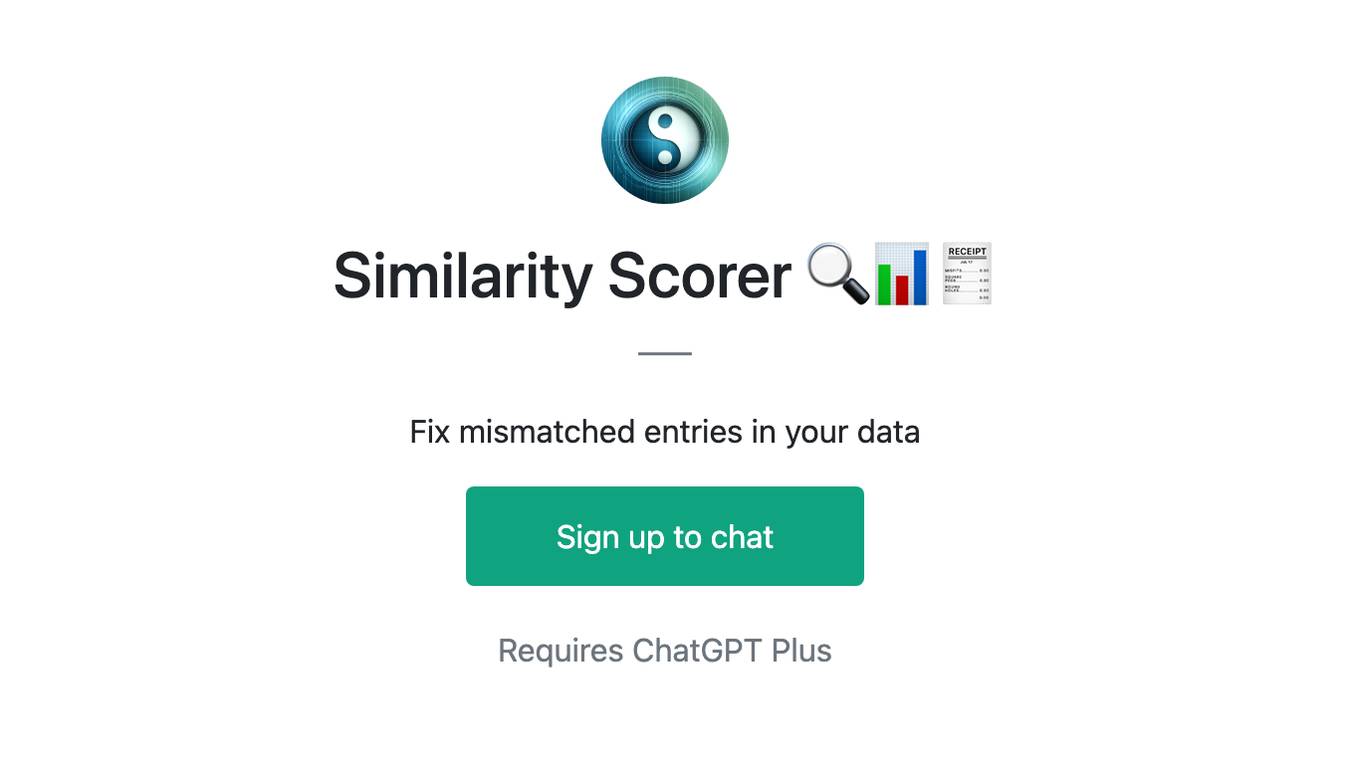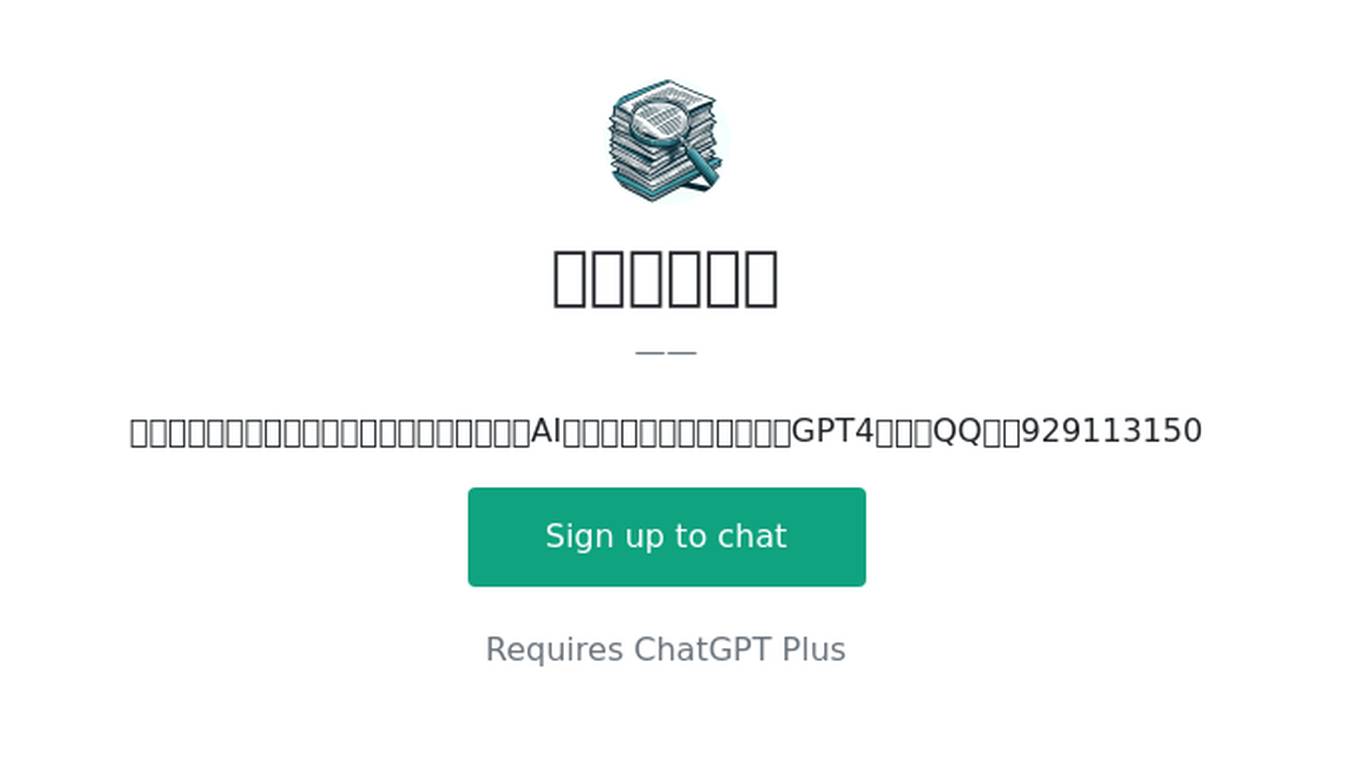Best AI tools for< Similarity Search >
17 - AI tool Sites
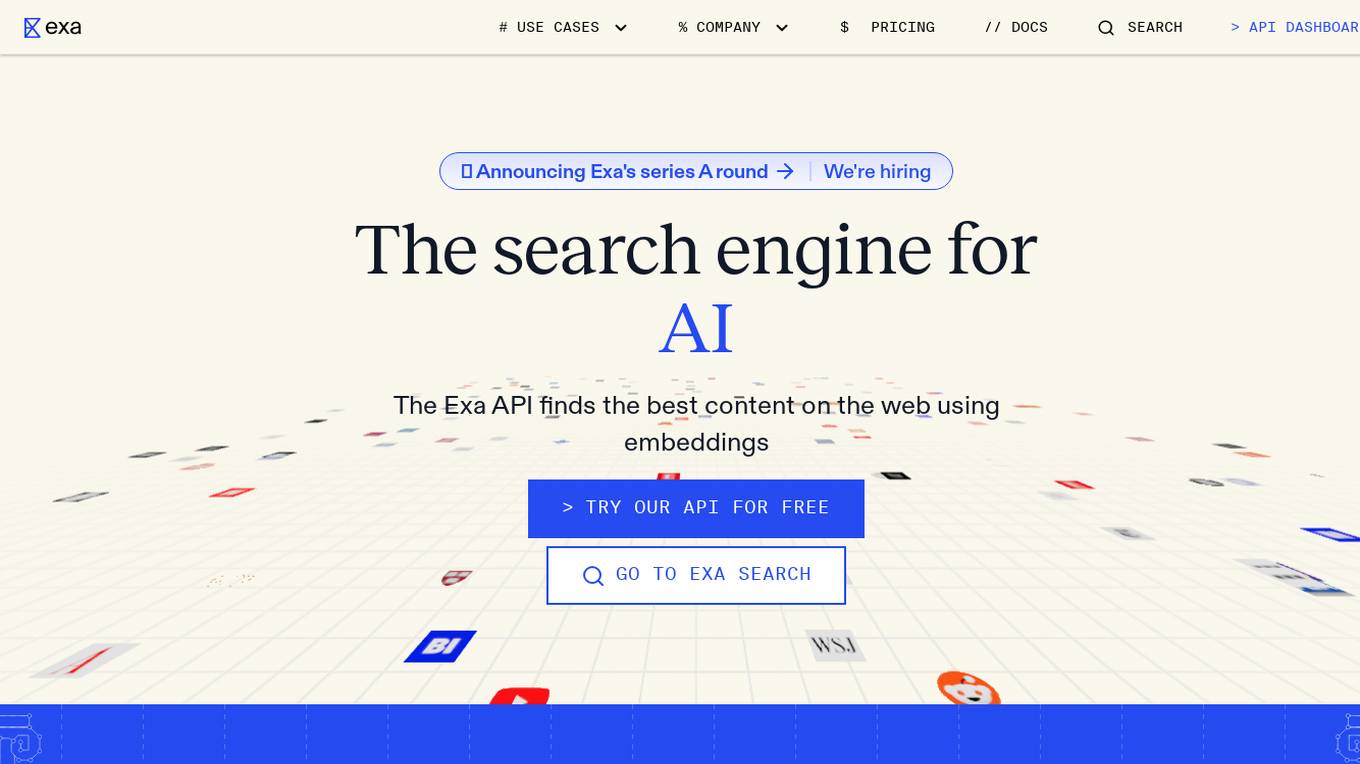
Exa
Exa is a web API designed to provide AI applications with powerful access to the web by organizing and retrieving the best content using embeddings. It offers features like semantic search, similarity search, content scraping, and powerful filters to help developers and companies gather and process data for AI training and analysis. Exa is trusted by thousands of developers and companies for its speed, quality, and ability to provide up-to-date information from various sources on the web.
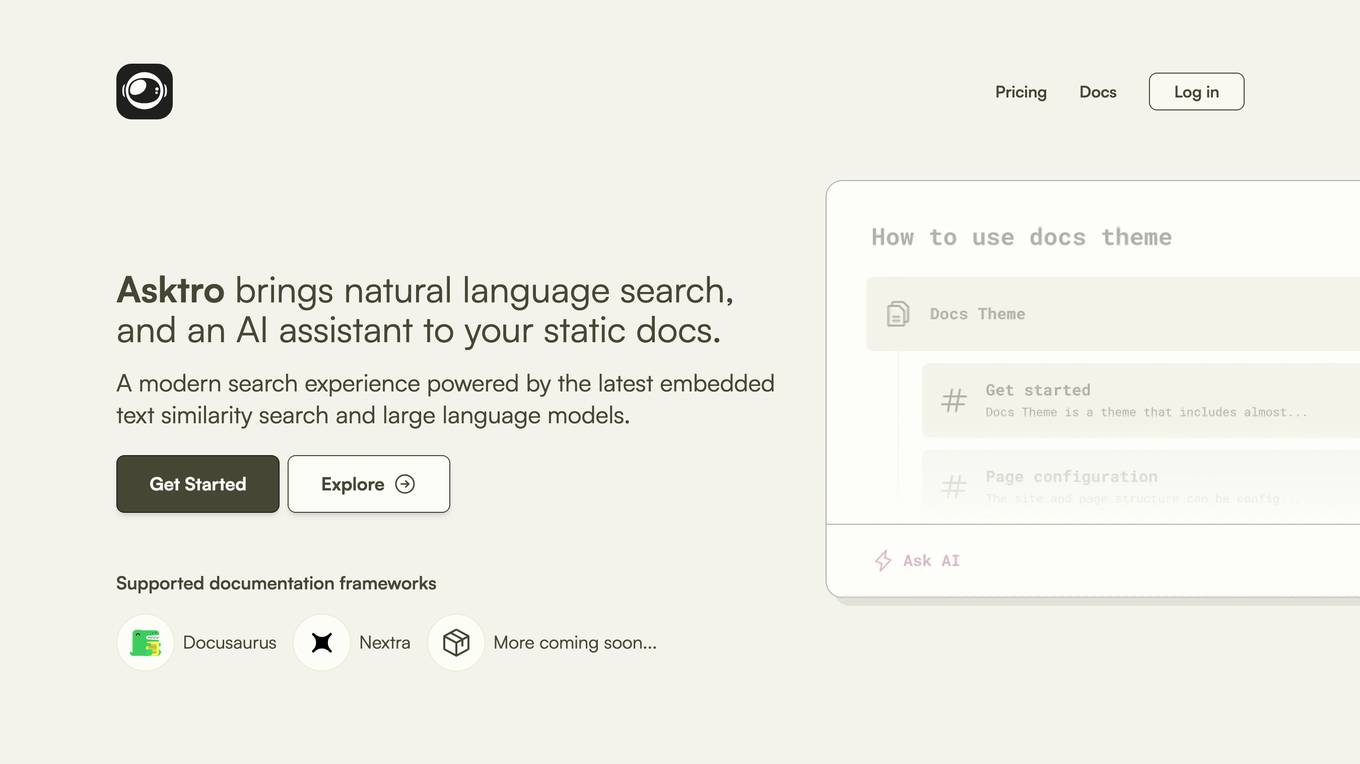
Asktro
Asktro is an AI tool that brings natural language search and an AI assistant to static documentation websites. It offers a modern search experience powered by embedded text similarity search and large language models. Asktro provides a ready-to-go search UI, plugin for data ingestion and indexing, documentation search, and an AI assistant for answering specific questions.

Cyanite.ai
Cyanite.ai is an AI-powered music tagging and similarity search application that revolutionizes the way music is organized, searched, and discovered. It offers a range of AI solutions for music professionals to enhance their music cataloging process, generate descriptive narratives, find similar music, perform free text searches, visualize music data, and gain insights into their music library. With its cutting-edge technology, Cyanite.ai aims to streamline music management and discovery processes for individuals and businesses in the music industry.
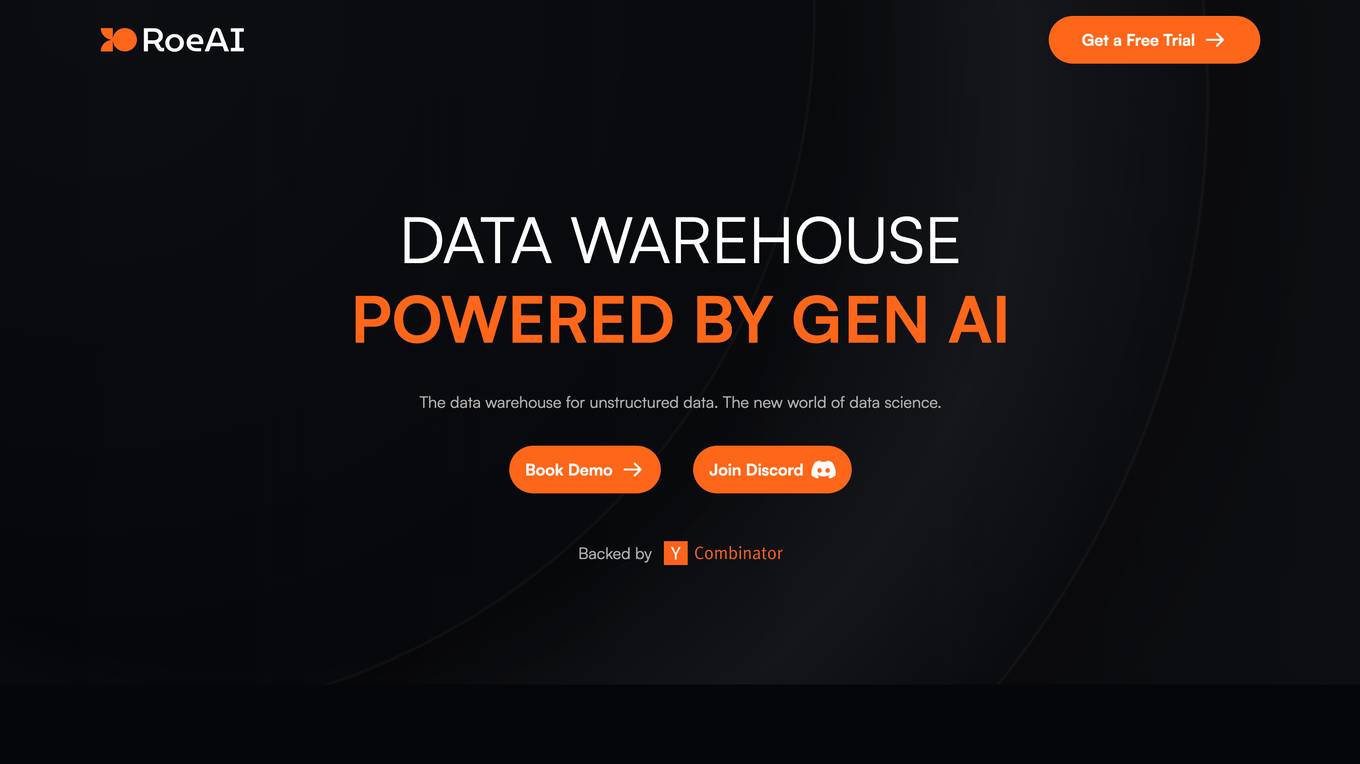
Roe AI
Roe AI is an unstructured data warehouse that uses AI to process and analyze data from various sources, including documents, images, videos, and audio files. It provides a range of features to help businesses extract insights from their unstructured data, including data standardization, classification and inferencing, similarity search, and natural language processing. Roe AI is designed to be easy to use, even for teams with minimal ML background.

SentiSight.ai
SentiSight.ai is a machine learning platform for image recognition solutions, offering services such as object detection, image segmentation, image classification, image similarity search, image annotation, computer vision consulting, and intelligent automation consulting. Users can access pre-trained models, background removal, NSFW detection, text recognition, and image recognition API. The platform provides tools for image labeling, project management, and training tutorials for various image recognition models. SentiSight.ai aims to streamline the image annotation process, empower users to build and train their own models, and deploy them for online or offline use.

Bibit AI
Bibit AI is a real estate marketing AI designed to enhance the efficiency and effectiveness of real estate marketing and sales. It can help create listings, descriptions, and property content, and offers a host of other features. Bibit AI is the world's first AI for Real Estate. We are transforming the real estate industry by boosting efficiency and simplifying tasks like listing creation and content generation.
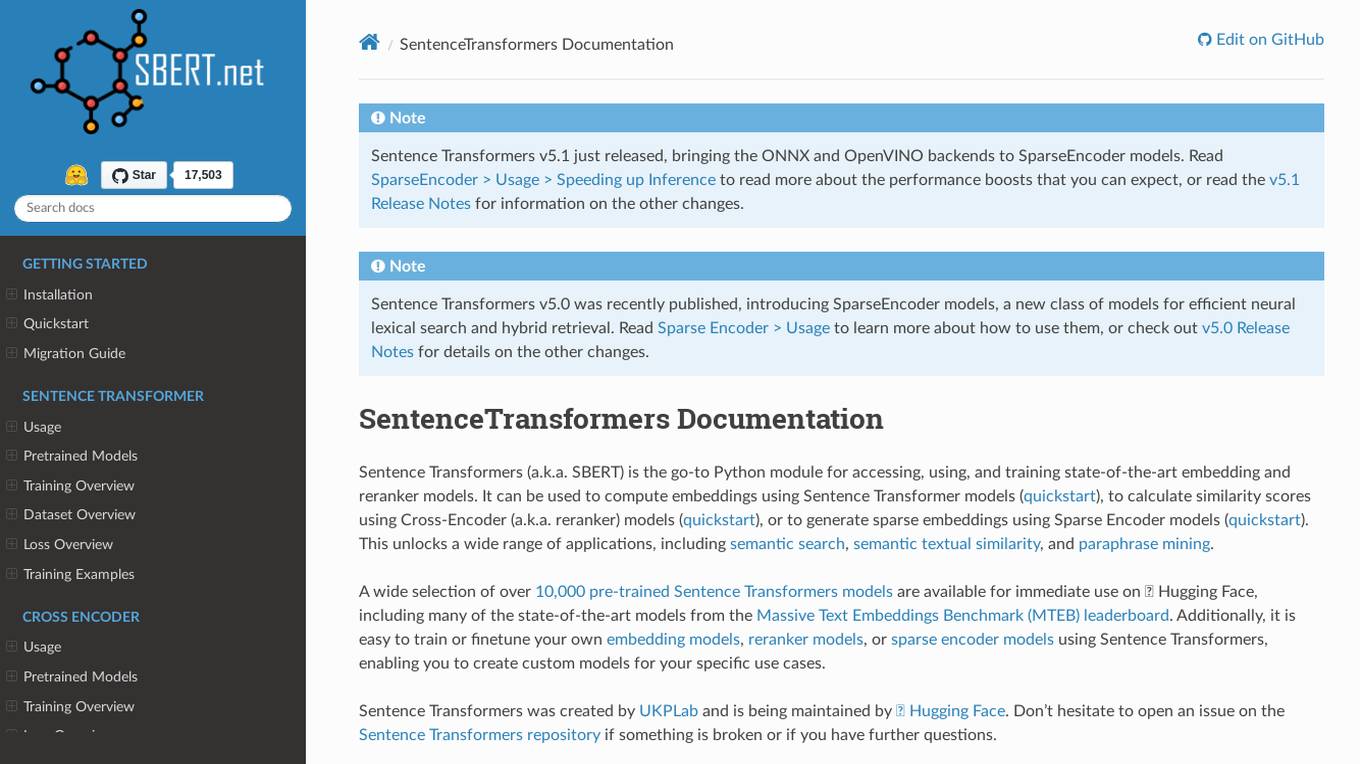
Sentence Transformers
Sentence Transformers is a Python module that provides access to state-of-the-art embedding and reranker models. It allows users to compute embeddings, calculate similarity scores, and generate sparse embeddings for various applications such as semantic search, semantic textual similarity, and paraphrase mining. The module offers a wide selection of pre-trained models and enables users to train or finetune their own models for specific use cases.

Pongo
Pongo is an AI-powered tool that helps reduce hallucinations in Large Language Models (LLMs) by up to 80%. It utilizes multiple state-of-the-art semantic similarity models and a proprietary ranking algorithm to ensure accurate and relevant search results. Pongo integrates seamlessly with existing pipelines, whether using a vector database or Elasticsearch, and processes top search results to deliver refined and reliable information. Its distributed architecture ensures consistent latency, handling a wide range of requests without compromising speed. Pongo prioritizes data security, operating at runtime with zero data retention and no data leaving its secure AWS VPC.
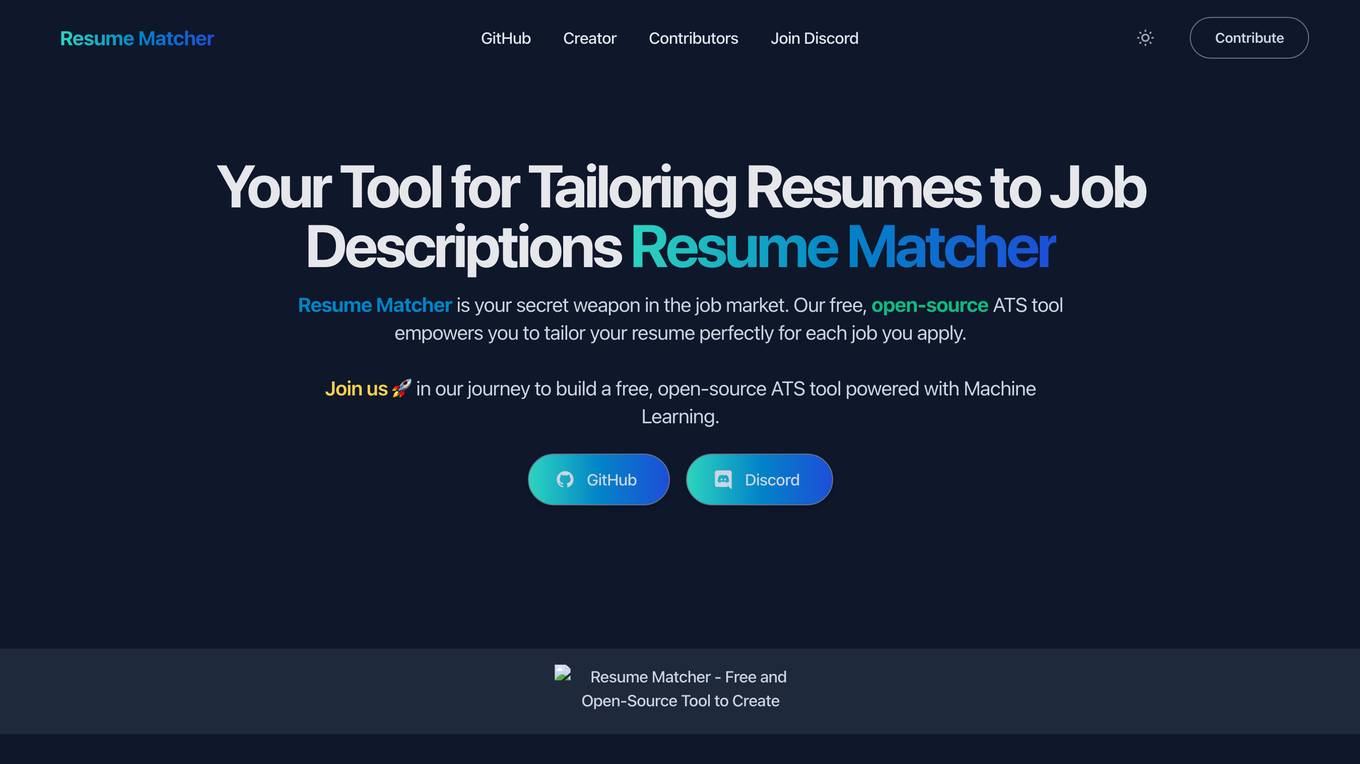
Resume Matcher
Resume Matcher is a free, open-source Applicant Tracking System (ATS) tool that uses Machine Learning and Natural Language Processing to match resumes with job descriptions. It empowers users to tailor their resumes for each job application by providing insights on similarities and differences between the resume and job requirements. The platform offers data visualizations, text similarity analysis, and plans to incorporate advanced features like Vector Similarity. With a user-friendly interface and Python-based technology, Resume Matcher aims to simplify the job search process for developers.

BestFaceSwap.ai
BestFaceSwap.ai is an AI-powered online tool for face swapping in videos and photos. It allows users to change faces in videos and photos with just 3 simple clicks, generating premium quality and realistic face swaps. With over 150K creators trusting the platform, BestFaceSwap.ai offers high-quality and realistic face swapping capabilities for various creative projects.
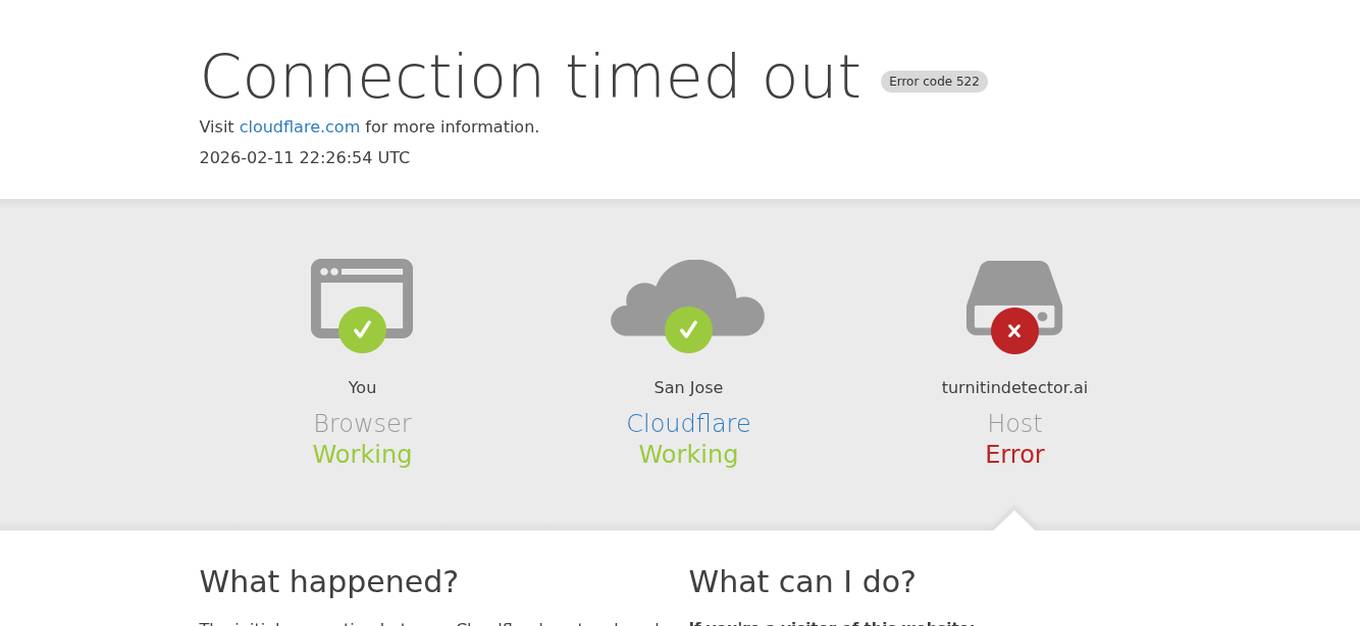
T-Checker
T-Checker is a plagiarism and AI report tool designed for students, researchers, and academic staff to scan for similarity in their work, fix citations, and receive AI writing reports instantly. It offers fast, private, and secure services with features like pre-checking similarity, fixing citations, and reducing accidental overlap. T-Checker ensures privacy by not storing files in a repository and provides bank-level security with 256-bit SSL encryption. The tool offers simple and transparent pricing plans to fit various research needs, with options for monthly or yearly subscriptions.
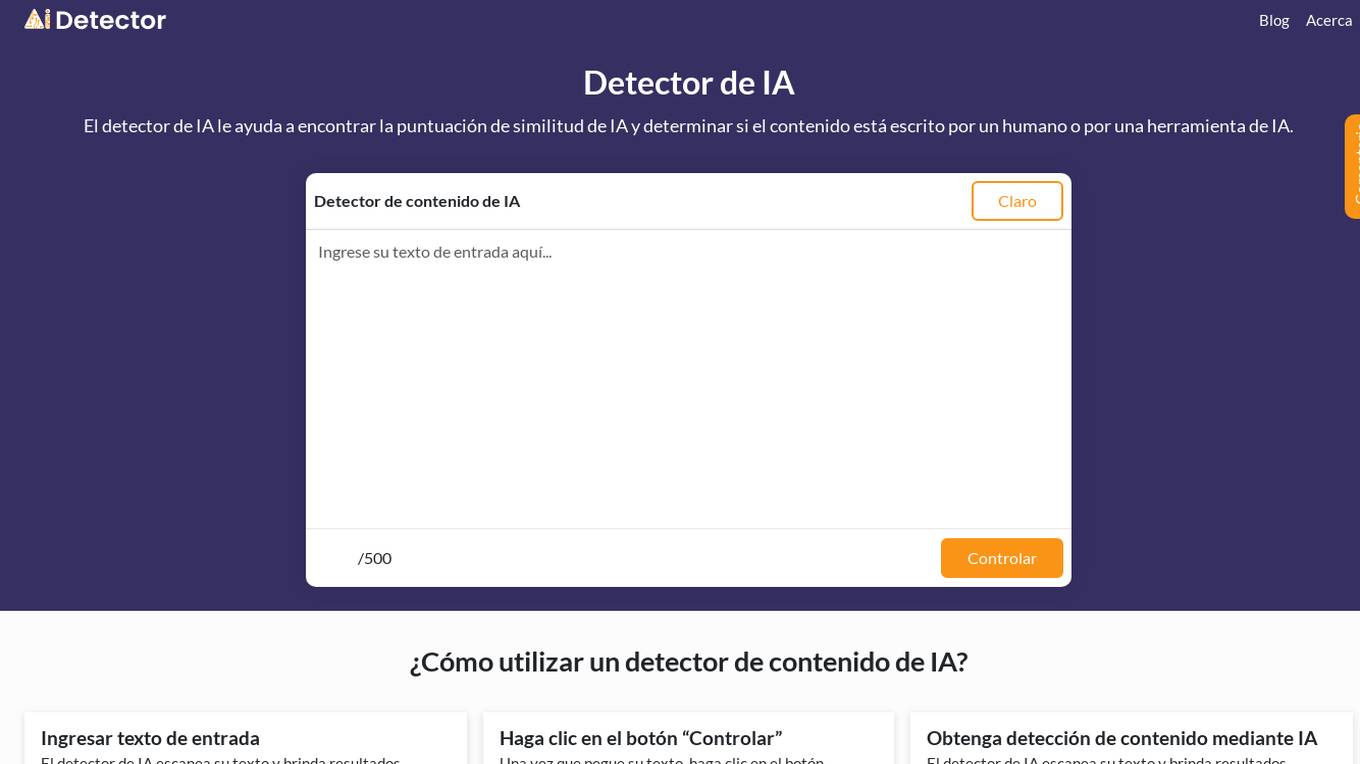
AI Content Detector
The AI Content Detector is an online tool that helps users determine the similarity score of AI-generated content and whether it was written by a human or an AI tool. It utilizes advanced algorithms and natural language processing to analyze text, providing a percentage-based authenticity result. Users can input text for analysis and receive accurate results regarding the likelihood of AI authorship. The tool compares syntax, vocabulary, and semantics with AI and human models, offering high accuracy in identifying paraphrased content.
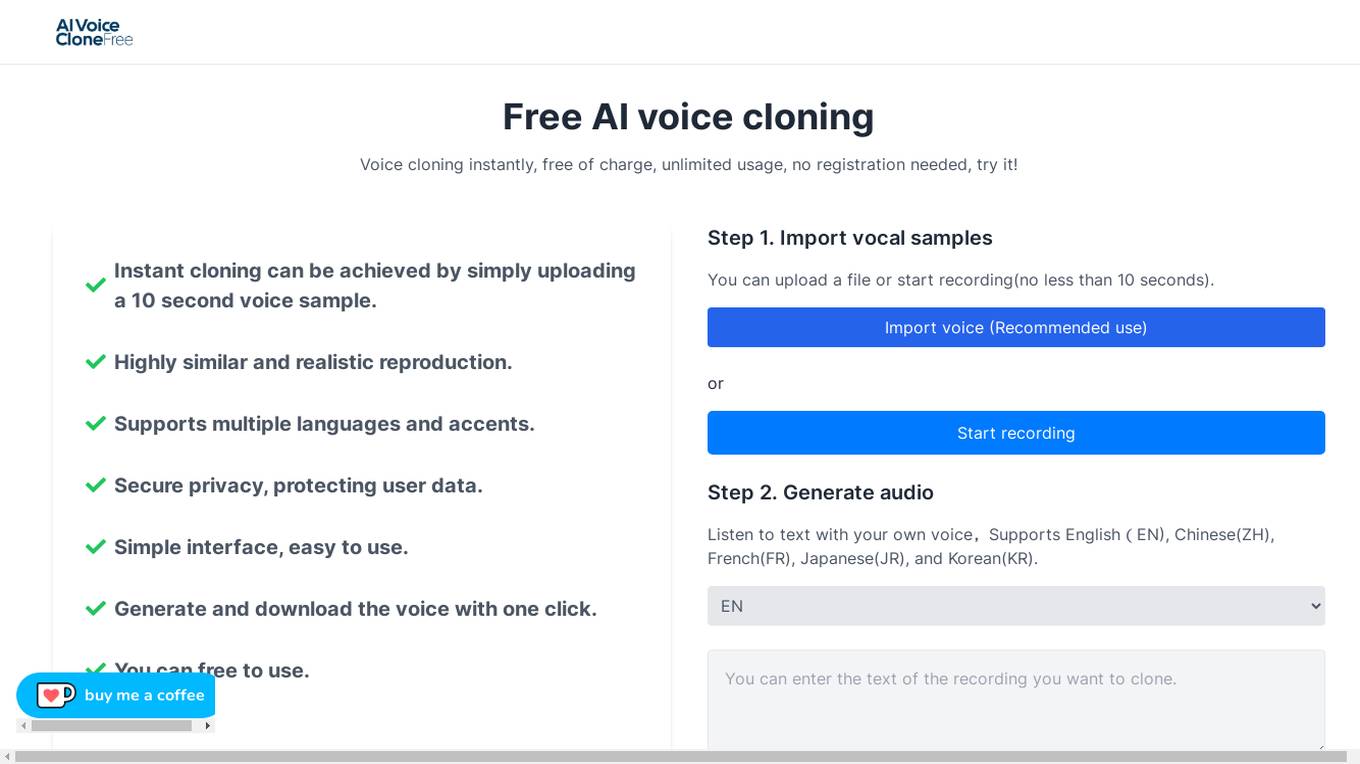
Woy AI Tools
Woy AI Tools is a free AI voice cloning application that allows users to instantly clone voices with high similarity and realism. Users can upload a 10-second voice sample to generate and download cloned voices in multiple languages and accents. The tool ensures secure privacy and offers a simple interface for easy usage.
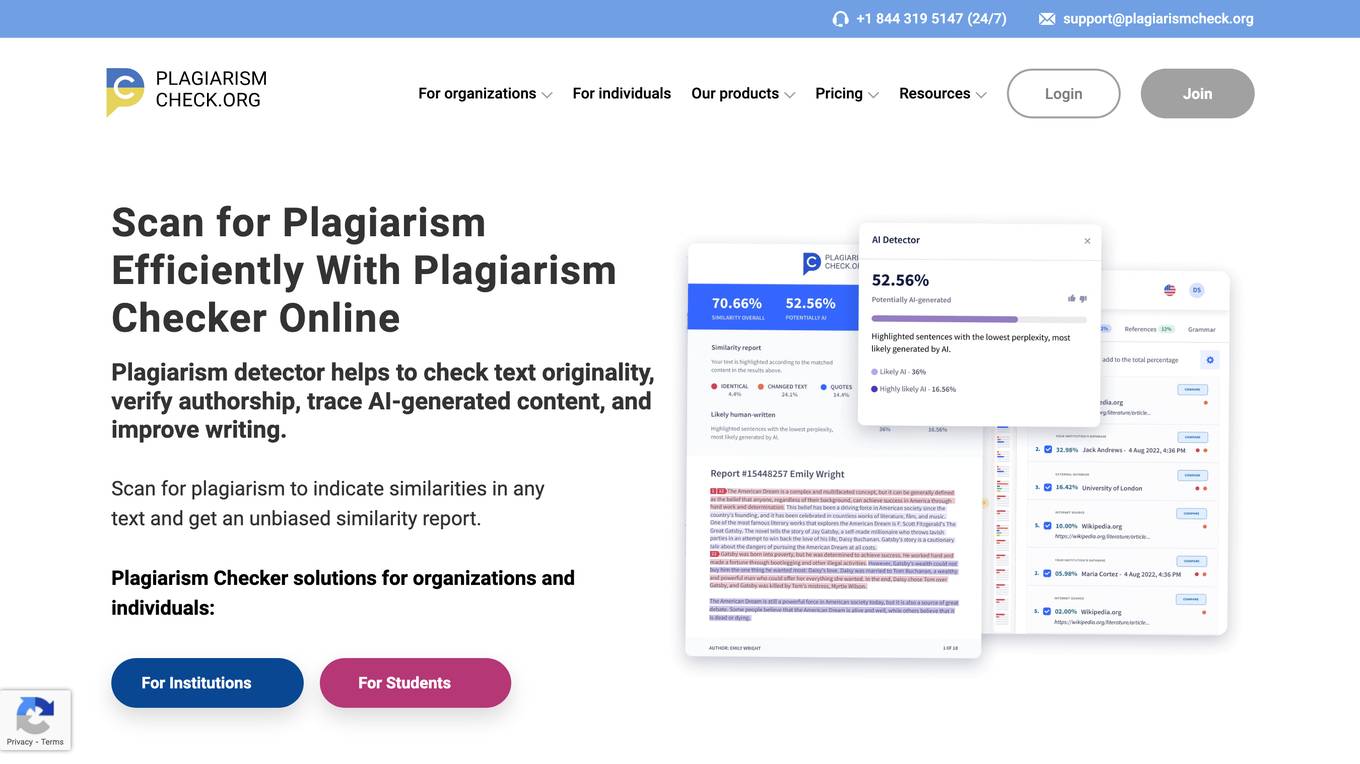
Plagiarism Checker
Plagiarism Checker is an online plagiarism detector that helps check text originality, verify authorship, trace AI-generated content, and improve writing. It scans for plagiarism to indicate similarities in any text and provides an unbiased similarity report. Plagiarism Checker offers solutions for organizations and individuals, including K-12 schools, higher education institutions, students, writers, and content creators. With advanced algorithms, unlimited text length, interactive results, downloadable reports, and strict confidentiality, Plagiarism Checker is a reliable tool for ensuring academic integrity and originality in writing.
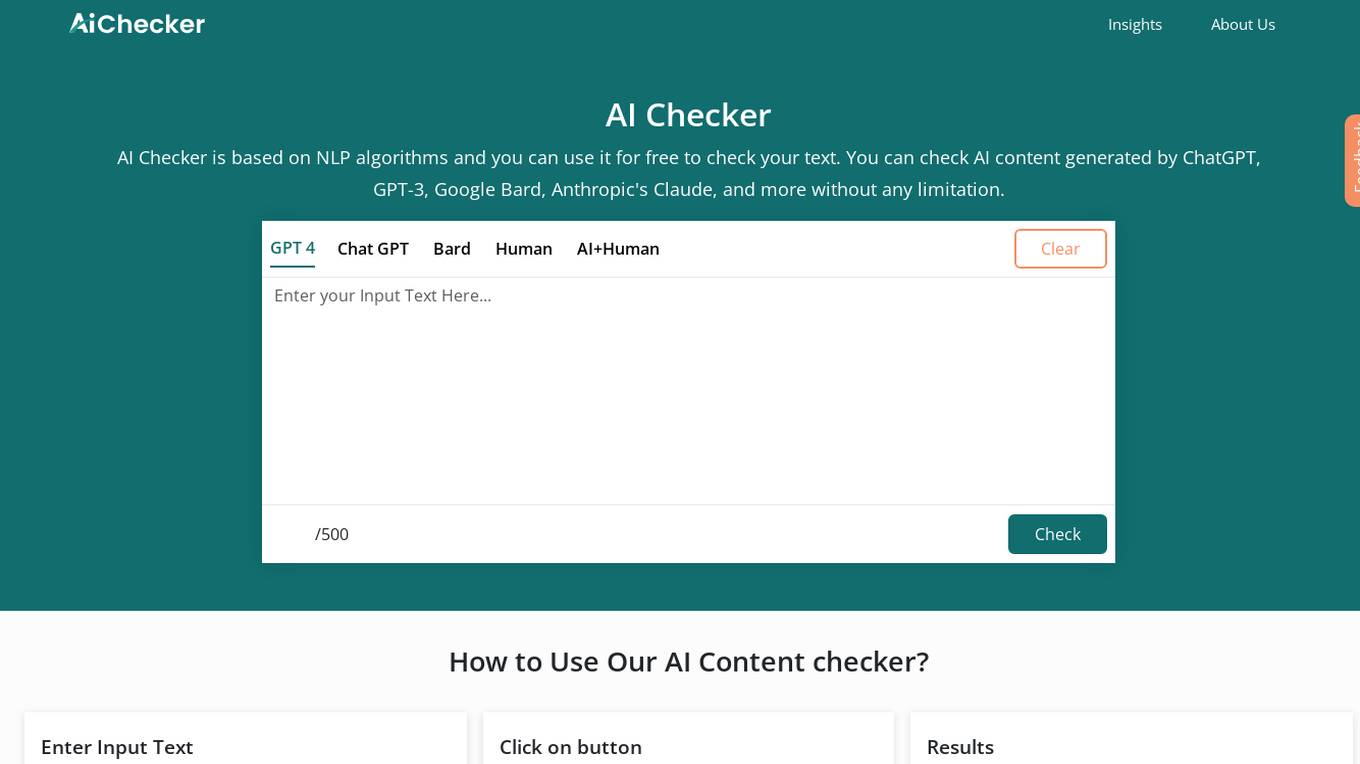
AI Checker
AI Checker is a free online tool that uses advanced artificial intelligence technology to detect AI-generated content. It can accurately identify text written by ChatGPT, Bard, and GPT-4, even when the text is carefully crafted to avoid detection. This AI writing checker works by analyzing the writing style and sentence structure. It looks for patterns that are commonly found in AI-generated content, such as repetitive phrases, vocabulary, keywords, academic language, and grammar errors. Our AI detector analyzes the text and provides a percentage score indicating the likelihood of AI writing similarity. A score of 100% means that the text is almost certainly AI-generated, while a score of 0% means that it is almost certainly human-written.

Korewa.AI
Korewa.AI is an AI chat platform for anime fans. It allows users to speak to or create user-generated scarily realistic anime characters. Characters can even display their emotions visually by giving them images for various expressions. Users can also publicly publish characters they've created, allowing anyone to speak to them. Korewa.AI offers a wide variety of advantages and unique features in comparison to services of any similarity, including advanced AI, a vivid experience, and a niche for anime.

Tabula
Tabula is an AI-powered data analytics platform that enables analytics teams to build the entire data workflow directly within the data warehouse. It leverages the magic of AI to analyze, cleanup, and structure unstructured data, allowing users to go from idea to final content in a single workflow using prompt chains. Tabula offers features such as text summarization, similarity score, category tagging with AI, text translation, and cheatsheet community. It provides advantages such as automating spreadsheets, consolidating data access, activating data insights, empowering real-time analytics, and streamlining data management. However, some disadvantages include a learning curve for new users, potential dependency on external APIs, and limited deployment options.
0 - Open Source AI Tools
7 - OpenAI Gpts
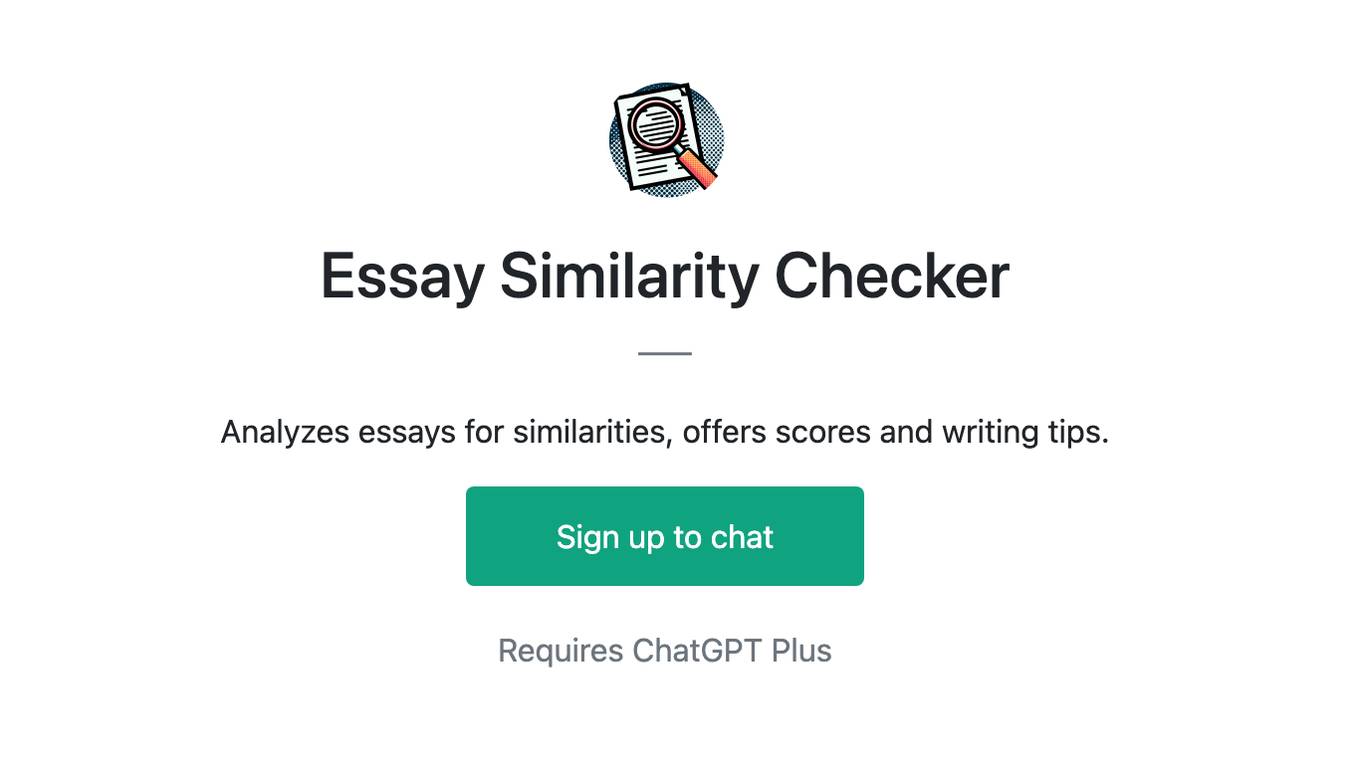
Essay Similarity Checker
Analyzes essays for similarities, offers scores and writing tips.
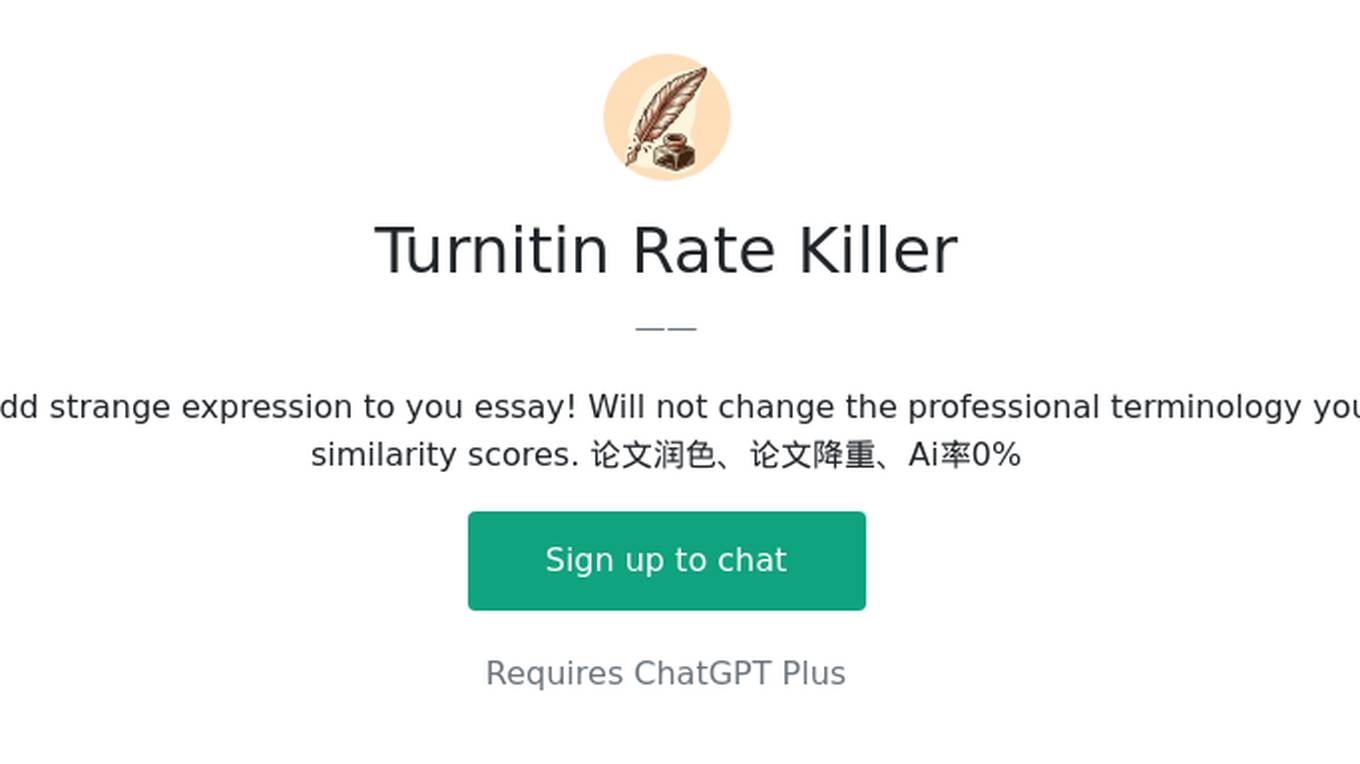
Turnitin Rate Killer
Help your essay get 0% rate! Will not add strange expression to you essay! Will not change the professional terminology you used in the essay! Reducing Turnitin similarity scores. 论文润色、论文降重、Ai率0%
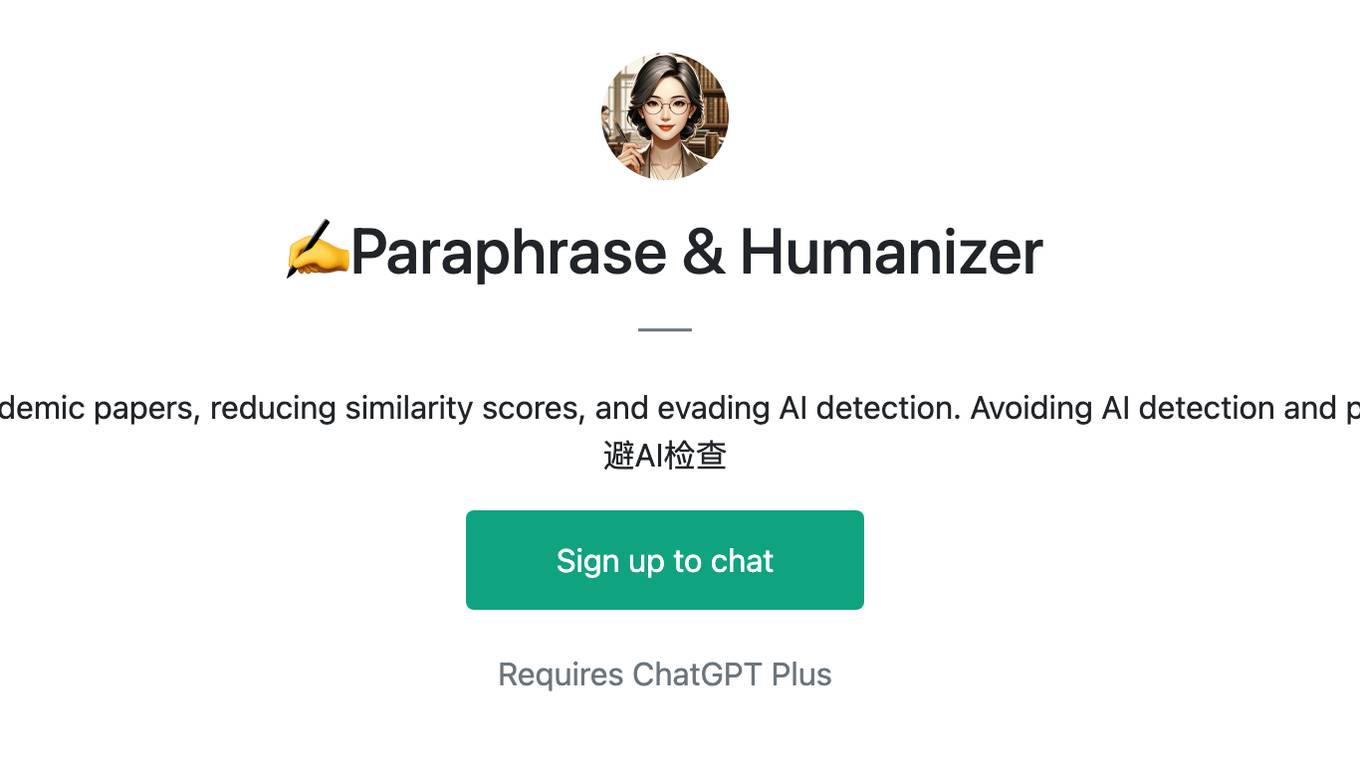
✍️Paraphrase & Humanizer
Expert in sentence refinement, polishing academic papers, reducing similarity scores, and evading AI detection. Avoiding AI detection and plagiarism checks. 论文润色、论文降重、规避AI检查
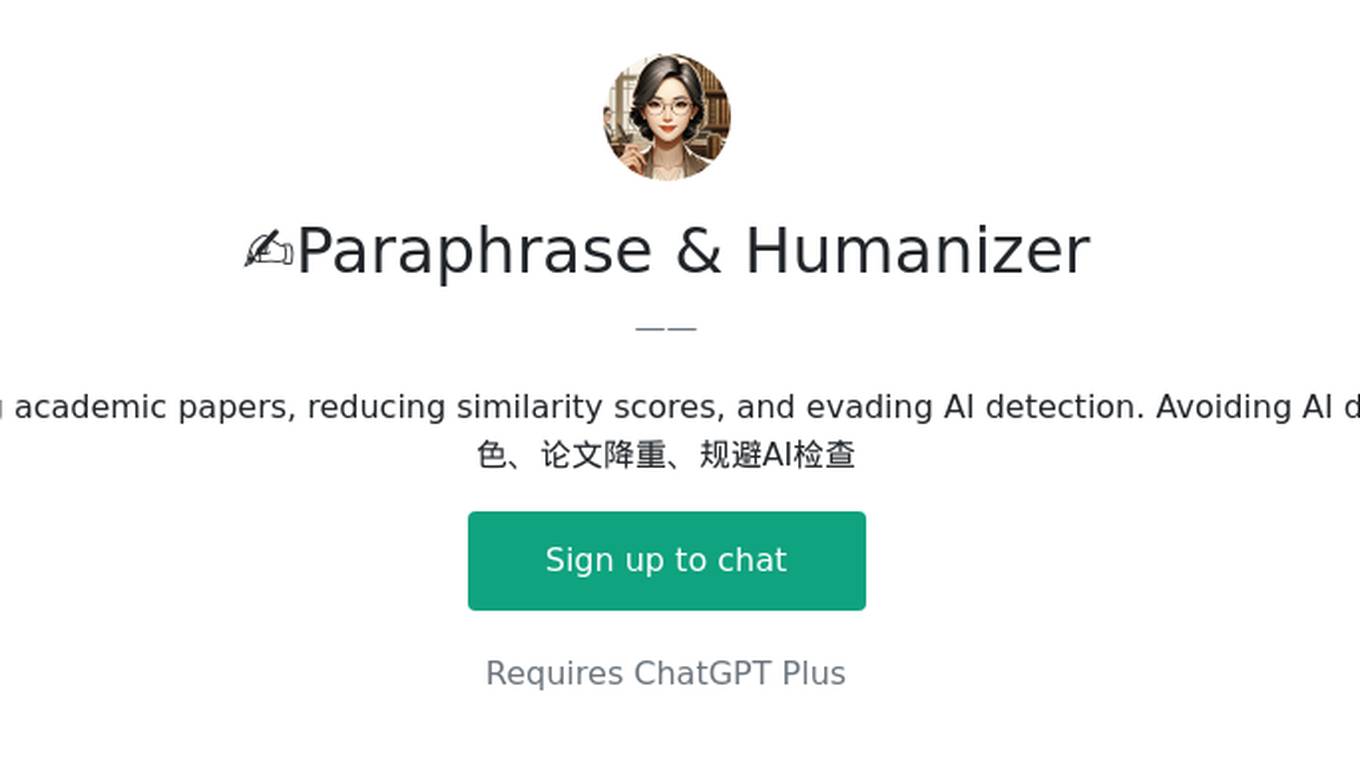
✍️Paraphrase & Humanizer
Expert in sentence refinement, polishing academic papers, reducing similarity scores, and evading AI detection. Avoiding AI detection and plagiarism checks. 论文润色、论文降重、规避AI检查
